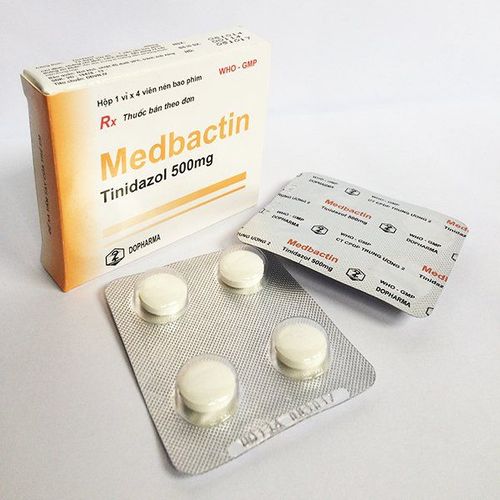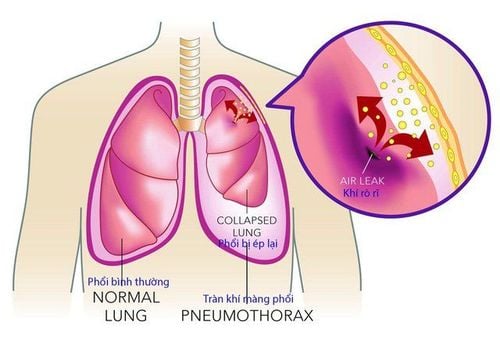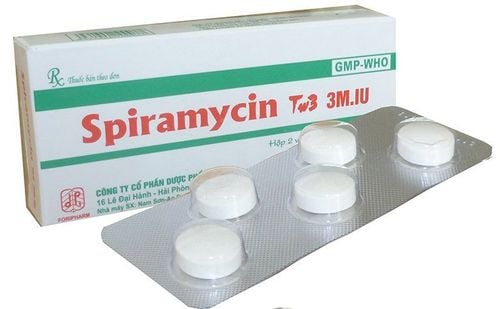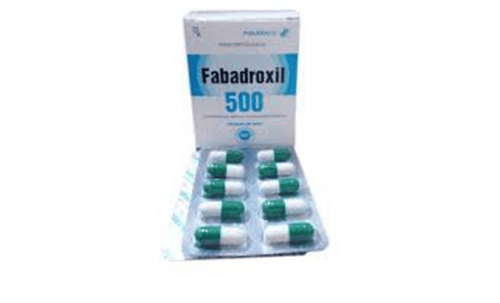This is an automatically translated article.
Alpathin is a drug belonging to the group of antiparasitic, anti-infective, antiviral, and antifungal drugs commonly used to treat complicated bacterial infections. Below is all the information about the use, use and dosage that patients need to know before being prescribed the drug.1. What is Alpathin?
Alpathin is a pharmaceutical product manufactured by Alpa Laboratories Ltd. - India and was imported into Vietnam by Canh Cua Viet Medical Co., Ltd. registered.
Alpathin belongs to the group of anti-parasitic, anti-infective, anti-viral, anti-fungal drugs with the main active ingredient being Cefalothin (in the form of a mixture of Cefalothin sodium and Sodium Bicarbonate) with the content of 1g. The drug is used to indicate the treatment of complicated infections, severe infections.
Alpathin is prepared as a powder for injection and is packaged in a box of 1 vial containing 1g of Cefalothin.
2. Uses of Alpathin
2.1. What does Alpathin do? Active ingredient Cefalothin is a 1st generation Cephalosporin antibiotic that has bactericidal effect by preventing the growth and division of bacterial cells by inhibiting the synthesis of bacterial cell walls.
Cefalothin parenteral administration has very strong activity against gram-positive cocci and bacilli, and moderate activity against gram-negative bacilli.
Cefalothin is generally resistant to enterococci, some gram-positive aerobic bacteria. Cefalothin is generally inactive against Listeria monocytogenes.
In gram-negative bacteria, Cefalothin is active against some Eerobacteriaceae including: Escherichia coli, Proteus mirabilis, Klebsiella pneumoniae and some species of Salmonella, Shigella. Inactive against Enterobacter, Proteus or Serratia species.
Cefalothin is active against Moraxella catarrhalis (Branhamella catarrhalis) and Neisseria species, although usually differs moderately from Haemophilus influenzae.
Cefalothi is generally insensitive to Bacteroides fragilis, Pseudomonas aeruginosa, mycobacteria, mycoplasma and fungi.
2.2. Indications for use of Alpathin Alpathin is considered the second choice drug used to replace Penicillin, treating complicated infections, infections caused by susceptible gram-positive bacilli and gram-positive cocci.
Cefalothin is indicated in the treatment of sepsis, osteomyelitis, endocarditis and other severe infections.
Other indications include:
Complicated urinary tract infections, recurrent severe cystitis or acute and chronic pyelonephritis. Respiratory tract infections such as bronchitis, severe pneumonia, lung abscess or empyema. Surgical infections such as peritoneal abscess, abdominal abscess, severe intestinal infections, postoperative infections and other infections. Surgical prophylaxis. Note: It is necessary to culture, test the susceptibility of bacteria before and during treatment, and perform kidney function tests when indicated.
2.3. Contraindications to use Alpathin Alpathin is contraindicated for people with hypersensitivity to Cefalothin, Cephalosporin antibiotics and other ingredients contained in the drug's excipients.
3. How to use, dose of Alpathin
The drug is used according to the prescription of a qualified doctor, so the patient needs to follow the correct use and dosage of the doctor or medical professional.
How to use:
Alpathin is prepared as a powder for injection, so it will be used by injection. Dissolve the powder in the vial with 3ml of distilled water for injection for deep intramuscular injection or with 6ml of distilled water for injection for slow intravenous injection over 5 minutes.
Intermittent infusion gives high serum drug concentrations and is effective. The appropriate dose in 24 hours is 8-12g, 2g each infusion and 4 or 6 times a day.
Dissolve 2g of Cefalothin in 100ml of 0.9% sodium chloride injection solution or 100ml of 5% glucose injection solution, infuse for 30-50 minutes.
Dosage:
Adults and adolescents: The usual dose is 500mg to 1g intramuscular or intravenous injection, 4-6 hours apart, depending on the severity of the infection. In case of severe infection, a dose of 2g should be administered intravenously and administered 4 times a day. If the disease is life-threatening, the dose can be increased to 12g/day (2g every 4 hours). Pediatric patients: Dosage is from 13.3-26.6mg/kg body weight every 4 hours or 20-40mg/kg body weight every 6 hours, intramuscularly or intravenously. Adult patients with renal impairment: Initial dose 1-2g IV and subsequent dose adjustment may be adjusted depending on the patient's creatinine clearance, the maximum maintenance dose is as follows: Large creatinine clearance more than 50ml/min use a maximum dose of 2g every 6 hours; Creatinine clearance from 50-25ml/min, dose 1.5g every 6 hours; Clearance 10-25ml/min administered at a dose of 1g every 6 hours; If the clearance is less than 10ml/min, the dose is 0.5g and every 6 hours. Prophylactic surgery: Adults take the usual dose of 1-2g intravenously 30-60 minutes before surgery and repeat 1 dose 1-2g 6 hours after surgery, with prolonged surgery can be 1 additional dose of 1-2g during surgery. As for children, the dose is 20-30mg/kg at the same time as adults. Note: This dosage is prescribed by the treating doctor based on the specific condition of the patient and the progress of the disease, the ability to absorb. Therefore, patients should strictly adhere to the dose prescribed by the doctor, do not arbitrarily change the dose without permission.
4. Side effects of Alpathin
When using Alpathin, patients may experience some side effects including:
Hypersensitivity reactions: Pain at the injection site and skin rash are the most common side effects. Body as a whole: Pain at the site of intramuscular injection and sometimes even induration. Gastrointestinal: Diarrhea and pseudomembranous colitis. Hematologic: Eosinophilia, bleeding complications, rarely neutropenia/thrombocytopenia, hemolytic anemia, positive Coombs reaction. Liver: Transient elevation of liver enzymes. Renal: Temporary increase in blood urea/creatinine, nephrotoxicity, interstitial nephritis. Other: Candidiasis. Note: If you experience side effects of the drug or have other unusual signs not listed above, the patient should immediately notify the doctor or medical professional for instructions on how to handle it promptly.
5. Drug interactions
Cefalothin may interfere with the Jaffé method's measurement of creatinine and may give falsely high values. Therefore, this point should be kept in mind when examining the patient's renal function. Cefalothin also causes false-positive Coombs test results and glucose reactions. Concomitant use with nephrotoxic drugs such as Gentamicin or aminoglycosides may increase the risk of kidney damage. In order to avoid drug interactions that affect health and the drugs being taken, patients need to list with their doctors a list of drugs they are taking recently for advice and more appropriate indications.
6. Notes and cautions when using Alpathin
To ensure safety and good results when using Alpathin, patients need to be cautious, paying attention to the following issues:
The drug is used according to the prescription and indication of a qualified doctor, Therefore, it is necessary to use it according to the instructions on how to use, dose, and time to use the drug. Before treatment with cefalothin, the patient's history of allergy to cephalosporins, penicillins and other drugs should be carefully checked. Because cross-sensitivity reactions have occurred in patients allergic to penicillins (including anaphylaxis), caution should be exercised and anaphylactic precautions should be taken when administering cefalothin to patients with a history of anaphylaxis. allergic to penicillin. Use caution when administering cefalothin to patients with renal failure. By using Cefalothin in combination with Gentamicin or other Aminoglycosides, there is an increased risk of nephrotoxicity. Renal function and blood clotting time should be monitored during long-term and high-dose Cefalothin therapy. Prolonged use of Cefalothin may cause overproduction of non-susceptible organisms, so monitor and discontinue the drug if superinfection occurs. There have been reports of pseudomembranous colitis when using broad-spectrum antibiotics, so careful monitoring and timely treatment of these cases are required. Cefalothin can be used safely during pregnancy, but pregnant women still need to be careful when using the drug and only use it when absolutely necessary as prescribed by a specialist. Cefalothin is excreted in breast milk at low concentrations, does not affect the nursing infant, however, nursing mothers should pay attention if the child has thrush, diarrhea, rash when the mother takes the drug.
7. Overdose and treatment
Overdose of Cephalosporins can lead to convulsions, brain irritation, especially in patients with renal failure. When convulsions occur, it is necessary to stop the drug and apply anticonvulsant measures, supportive treatment. Peritoneal dialysis or hemodialysis may reduce plasma cefalothin concentrations.
In case of danger, affecting life, it is necessary to contact the emergency center 115 and take the patient to the nearest hospital for emergency treatment and timely treatment.
8. How to store Alpathin
For unused medicine, still in its original bottle, it should be stored in a dry place, with a temperature below 30 degrees Celsius and no sunlight, no moisture. As for the reconstituted drug, it should be used immediately after the preparation is complete to ensure quality, if necessary, it can be stored in the refrigerator at a temperature of 2°C to 8°C within 24 hours. Medicines should be kept out of the reach of children and pets. For drugs that have expired or are no longer in use, care should be taken not to throw them into the toilet or flush them under the household's tap, or to throw them indiscriminately. Contact your doctor or waste disposal company for instructions on how to safely and properly dispose of your medication. Above is information about the use of Alpathin medicine, usage, dosage. This information is for your reference only and is not intended for professional medical diagnosis or treatment. Therefore, patients are not allowed to self-medicate without the prescription and prescription of the doctor. Please contact a specialist or medical professional for advice and the best use of the drug.













